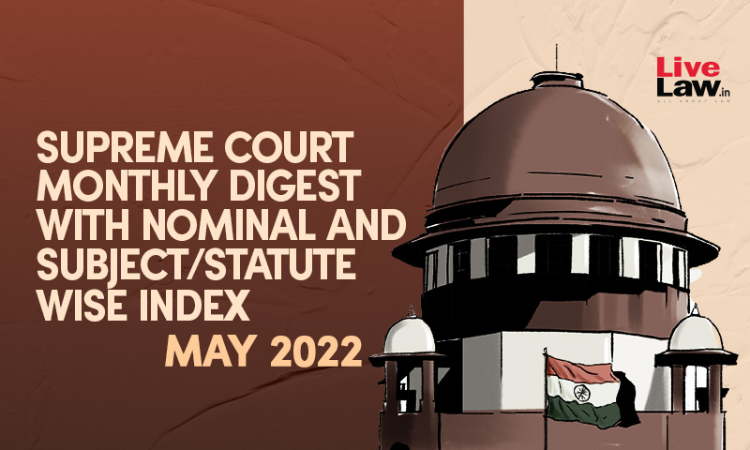Supreme Court Monthly Digest- May 2022 With Nominal And Statute/Subject Wise Index
LIVELAW NEWS NETWORK
2 Jun 2022 7:34 PM IST

Next Story
2 Jun 2022 7:34 PM IST
Aadhaar Act 2016 - UIDAI directed to issue Aadhaar cards to sex workers without insisting proof of residence. Budhadev Karmaskar v. State of West Bengal, 2022 LiveLaw (SC) 525 Advocate - Senior Advocate Designation - Instead of ten marks to be allocated to a counsel who has put in between ten to twenty years of practice, the marks be allocated commensurate with the standing of...
